A Family Centered Approach to Ambiguous Loss in Pediatric Brain Injury and Disorders of Consciousness - (2024)
-
You must log in to register
- Non-member - $60
- Member - $35
- Student - $15
Following a pediatric brain injury, the entire family system is impacted. Siblings and caregivers of the patients often experience many changes, which can lead to feelings of grief and loss. Although the patient may be physically present, due to recovery or disorders of consciousness, ambiguous loss is commonly experienced. Certified Child Life Specialists can apply our knowledge of loss and grief to support siblings of patients who have suffered a brain injury. Concurrently, social workers support caregivers coping with uncertainty and grief. This presentation will help participants apply the concepts of ambiguous loss to pediatric brain injuries and disorders of consciousness. Participants will understand common grief responses in siblings and caregivers of patients with a brain injury and disorder of consciousness, and various interventions to support a family’s grief processes. Participants will recognize psychosocial support across the multidisciplinary team as an invaluable aspect of family-centered care.
Suggested Domain: Intervention
1.5 PDU
Learning Objective(s):
- Participants will be able to understand pediatric brain injuries and disorders of consciousness and apply the concepts of ambiguous loss.
- Participants will be able to identify unique challenges faced by siblings of patients with brain injuries and disorders of consciousness and identify 3 interventions to promote resiliency and post-traumatic growth.
- Participants will be able to identify unique challenges faced by caregivers of patients with brain injuries and disorders of consciousness and identify a multidisciplinary approach to supporting caregivers’ coping.
Please note: All webinar contents and its certificate will expire on 10/23/2027 regardless of when it is purchased, accessed, or completed. At that point, contents will no longer be available in any form, including as an archive or as a PDU certificate. It is the responsibility of the learner to complete the contents and download and save the certificate for their records prior to 10/23/2027.
Emily Montag, MS, CCLS
Certified Child Life Specialist III
Kennedy Krieger Institute
Emily Montag currently works as a Certified Child Life Specialist at Kennedy Krieger Institute’s Inpatient Rehabilitation Unit in Baltimore, Maryland. Emily received her Master’s Degree at Towson University in Child Life, Administration, and Family Collaboration. Emily enjoys working at Kennedy Krieger Institute particularly because of the psychosocial collaborative approach within the multidisciplinary team. Emily recently published two books with the Christopher & Dana Reeve Foundation designed to help children better understand spinal cord injury. Emily’s special interests include providing support for children with spinal cord injuries who are weaning off ventilation support, promoting independence with self-catheterization, and educating siblings of children who have sustained traumatic brain injuries.
Jackie Newman, MS, CCLS
Child Life Specialist I
Kennedy Krieger Institute
Jackie Newman, MS, CCLS currently serves as Child Life Specialist I at Kennedy Krieger’s inpatient rehab unit, where she has worked for two years. She has a Bachelor’s Degree in Psychology and Human Development and a Master’s Degree in Child Life both from Wheelock College at Boston University. Jackie has a professional interest in promoting self-advocacy and independence for children and adolescents with spinal cord injuries.
Kayley Teich, MS, CCLS
Certified Child Life Specialist
Kennedy Krieger Institute
Kayley Teich, MS, CCLS, currently works as a Certified Child Life Specialist at Kennedy Krieger Institute’s Inpatient Rehabilitation Unit, Epilepsy Monitoring Unit, and Outpatient EEG Clinic in Baltimore, Maryland. Kayley received her Master’s Degree at Towson University in Child Life, Administration, and Family Collaboration. Kayley’s professional interests include adapting activities to meet the needs of patients, supporting families of patients with traumatic brain injuries, and working collaboratively with the interdisciplinary team to provide quality psychosocial care.
Sarah Carter, LMSW
Social Worker
Kennedy Krieger Institute
Sarah Carter, LMSW, is a social worker on Kennedy Krieger Institute's Pediatric Comprehensive Neurorehabilitation Unit. She has worked in Inpatient Social Work at Kennedy Krieger Institute since 2021 and has served on all three inpatient units (Neurobehavioral, Feeding Disorders, and Neurorehabilitation). Previously, Sarah provided mental health and college counseling to students at the Friends School of Baltimore. Prior to these roles, Sarah spent nearly ten years working for non-profit organizations that sought to address a wide range of issues, from global regulatory and health inequity, to immigration reform, to progressive economic policy following the 2008 recession. Sarah received her Masters in Social Work from the University of Washington in Seattle and her Bachelor of Arts in International Studies and Anthropology from Kenyon College.
Hailey Mangano, LCSW-C, MSW, MSc
Clinical Social Worker
Hailey is a Licensed Clinical Social Worker, with additional training in pediatric palliative care and hospice. She received her BSW from Salisbury University, MSW from University of Maryland Baltimore, and Master of Science in Palliative Care with an individual concentration in Psychosocial and Spiritual Aspects of Palliative Care and Hospice from University of Maryland. Hailey has worked in the field for over five years, working in the inpatient setting, as well as in outpatient medical clinics. Hailey’s work includes serving patients and families with complex medical needs, processing grief and trauma, assessing goals of care, and assisting with advanced-care planning.
